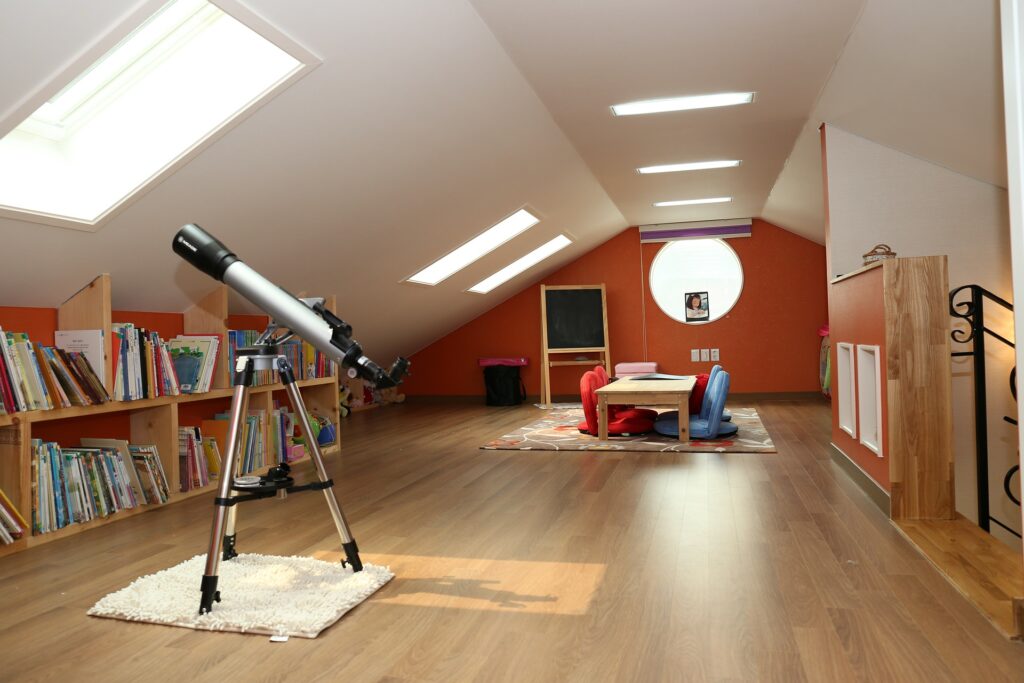The Benefits and Challenges of Creating a Home Office through Loft Conversion
In the era of remote work, having a dedicated home office has become more important than ever. A loft conversion can be an excellent way to create this space, offering numerous benefits but also presenting some challenges. Let's explore these in more detail.

Benefits of Creating a Home Office through Loft Conversion
Increased Property Value
A loft conversion is one of the most effective ways to increase the value of your property. According to various real estate studies, a loft conversion can increase a property’s value by up to 20%. This is because it adds additional usable square footage to the property without increasing its footprint. 
When this new space is turned into a home office, the value can increase even further. With the rise of remote work, a home office has become a highly desirable feature for many homebuyers. It’s not just a room; it’s a space that can enhance productivity, offer privacy, and provide a dedicated area for work-related activities. Therefore, a loft conversion that includes a home office can significantly boost your property’s market appeal and potential selling price. Steph Fanizza, Architectural Design & Team Manager
Tell us about your plan and we'll send you a free quote! It takes less than 60 seconds!
Improved Work-Life Balance
Having a dedicated workspace at home can greatly improve your work-life balance. When your office is in a separate area of the house, it’s easier to create boundaries between your professional and personal life.
A loft conversion provides a distinct separation from the main living areas, which can help you mentally separate work from relaxation time. When you’re in your loft office, you’re at work. When you’re elsewhere in your home, you’re off duty. This clear delineation can help prevent work from encroaching on your personal time and reduce the risk of burnout.
Moreover, a loft office can help reduce distractions, allowing you to focus better and be more productive during work hours. This can free up more time for relaxation and personal activities, further improving your work-life balance.
Cost-Effective
Compared to other methods of adding space to your home, a loft conversion can be quite cost-effective. Building an extension or moving to a larger home can be significantly more expensive and time-consuming.
A loft conversion makes use of space that’s already there but often underutilized. This means you don’t need to pay for additional land or foundation work. While a loft conversion does have costs associated with it, such as construction, insulation, and possibly adding windows or stairs, these are often lower than the costs of other methods of adding space.
When this space is used as a home office, it can also save you money in other ways. For instance, it can eliminate or reduce commuting costs and allow you to claim certain tax deductions for home office use.
Natural Light
Lofts often have the advantage of being at the top of the house, which can make them ideal for capturing natural light. This is a significant benefit for a home office.

To maximize the natural light in your loft office, you can add skylights or large windows. Not only will this flood your workspace with light, but it can also provide inspiring views that can boost your mood and creativity.
Moreover, natural light can make the space feel larger and more open, which can be particularly beneficial in a loft where the ceiling may be lower or the space smaller than in other rooms.
Challenges
- Building Regulations : Loft conversions must comply with building regulations, which cover aspects like fire safety, insulation, and access. Navigating these regulations can be complex and time-consuming.
- Space Constraints : Lofts can be small or awkwardly shaped, which can limit your office design. You’ll need to be creative to make the most of the space.
- Noise : If your loft isn’t well-insulated, noise could be an issue. You may need to invest in soundproofing to create a quiet workspace.
- Heating and Cooling : Lofts can get hot in summer and cold in winter. You’ll need to consider how to maintain a comfortable temperature in your home office.
In conclusion, creating a home office through a loft conversion can offer numerous benefits, from increasing your property value and improving your work-life balance to saving money and enhancing your work environment with natural light. By carefully planning your loft conversion and designing your home office to meet your needs, you can reap these benefits and create a workspace that’s both functional and enjoyable.












